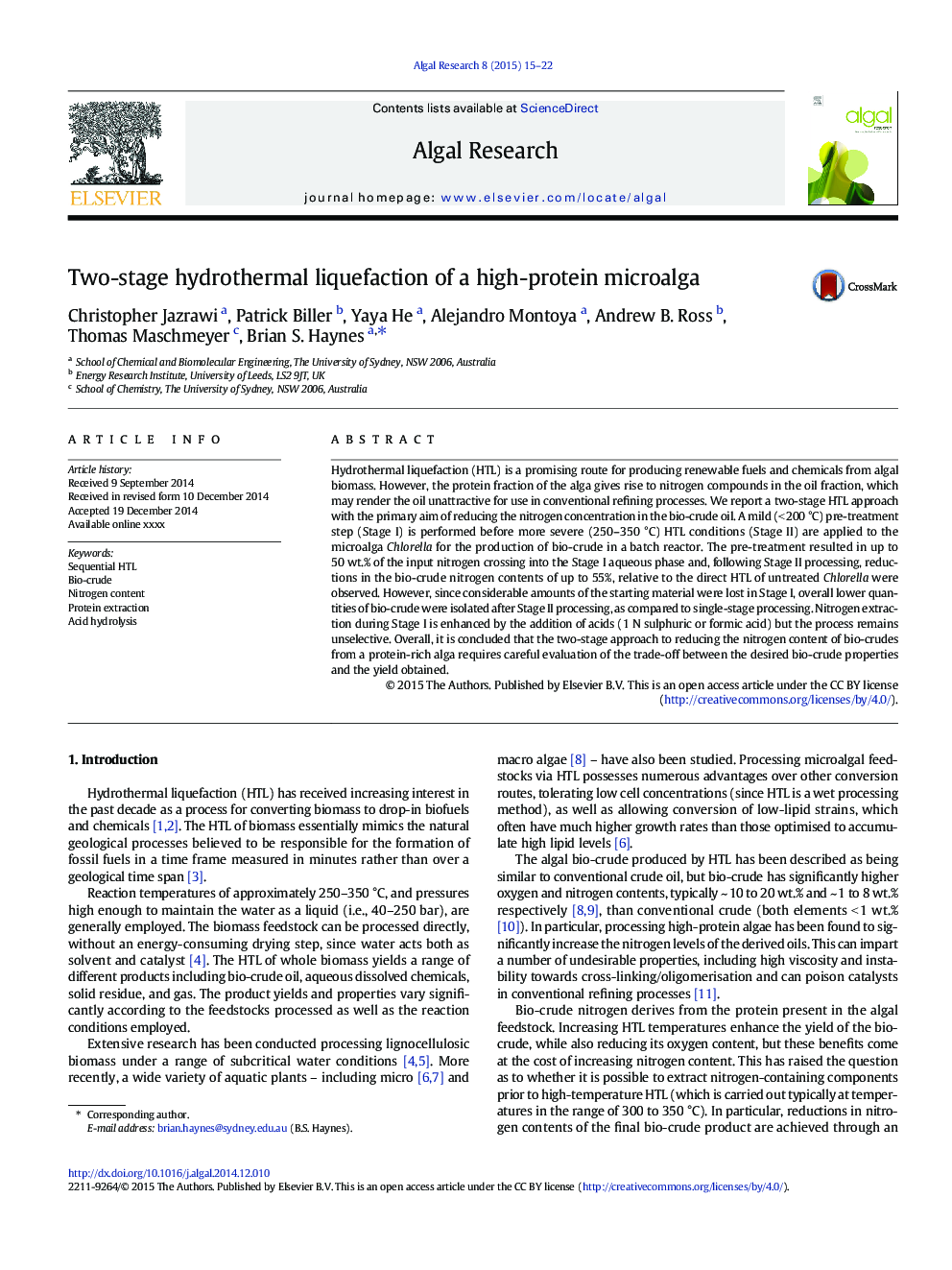| Article ID | Journal | Published Year | Pages | File Type |
|---|---|---|---|---|
| 8088368 | Algal Research | 2015 | 8 Pages |
Abstract
Hydrothermal liquefaction (HTL) is a promising route for producing renewable fuels and chemicals from algal biomass. However, the protein fraction of the alga gives rise to nitrogen compounds in the oil fraction, which may render the oil unattractive for use in conventional refining processes. We report a two-stage HTL approach with the primary aim of reducing the nitrogen concentration in the bio-crude oil. A mild (< 200 °C) pre-treatment step (Stage I) is performed before more severe (250-350 °C) HTL conditions (Stage II) are applied to the microalga Chlorella for the production of bio-crude in a batch reactor. The pre-treatment resulted in up to 50 wt.% of the input nitrogen crossing into the Stage I aqueous phase and, following Stage II processing, reductions in the bio-crude nitrogen contents of up to 55%, relative to the direct HTL of untreated Chlorella were observed. However, since considerable amounts of the starting material were lost in Stage I, overall lower quantities of bio-crude were isolated after Stage II processing, as compared to single-stage processing. Nitrogen extraction during Stage I is enhanced by the addition of acids (1 N sulphuric or formic acid) but the process remains unselective. Overall, it is concluded that the two-stage approach to reducing the nitrogen content of bio-crudes from a protein-rich alga requires careful evaluation of the trade-off between the desired bio-crude properties and the yield obtained.
Related Topics
Physical Sciences and Engineering
Energy
Renewable Energy, Sustainability and the Environment
Authors
Christopher Jazrawi, Patrick Biller, Yaya He, Alejandro Montoya, Andrew B. Ross, Thomas Maschmeyer, Brian S. Haynes,
